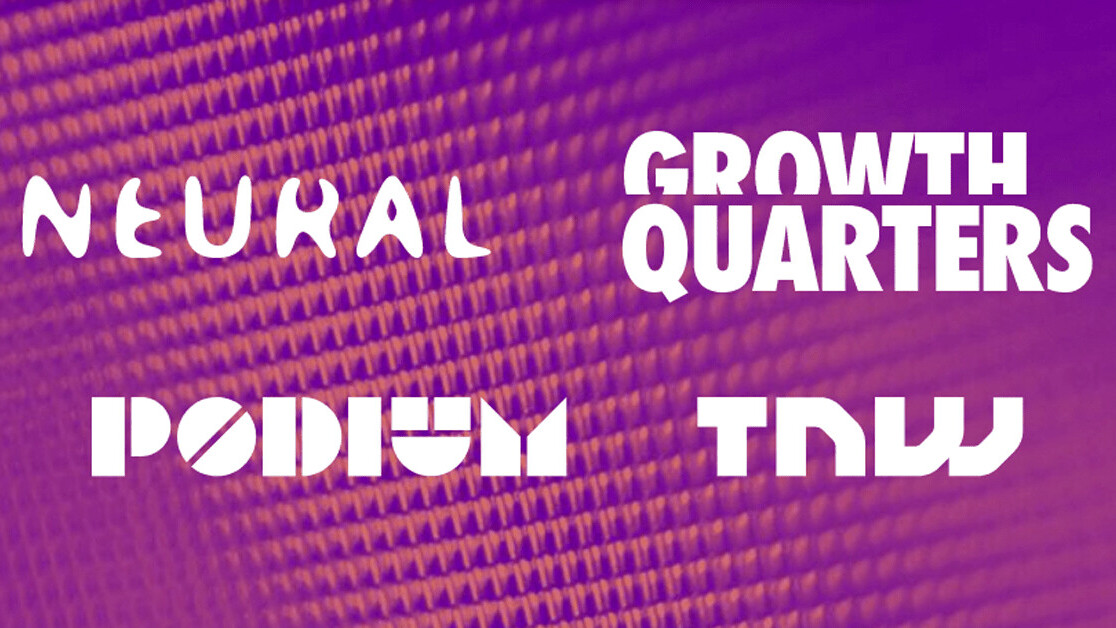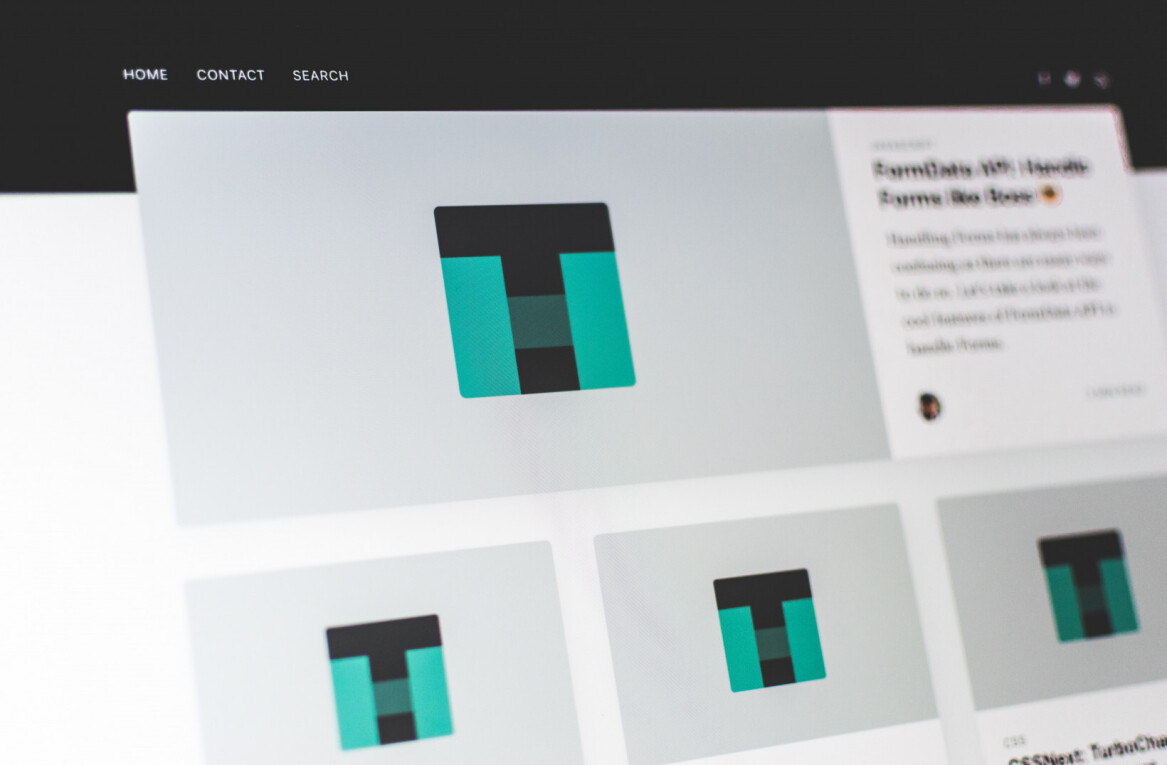
Attention — we’re currently looking almost exclusively for submissions to our entrepreneurial sub-brand, Growth Quarters. You can find a shorter and more updated guide on how to submit a Growth Quarters piece here.
How to contribute to TNW’s curated expert community
Congratulations! You’ve stumbled upon TNW’s beautiful little writing guide on how to contribute to our curated expert community, Podium.
Podium is our platform for experts to share their insights by bringing fresh opinions, analyses, and advice to TNW’s readers on various tech, business, and entrepreneur topics. If you’re one of those experts, then read on to find what type of content we’re looking for, what you’ll get out of contributing to Podium, and a link to our submission form!
Heavenly angles
Finding the right angle is the single most important thing when writing a story. To help you do this (since you’re obviously interested in contributing to TNW’s Podium) we’ve narrowed our content down to three categories:
- Opinion
- Advice
- Analysis
Any article you submit to us should fall under one of these categories as each one provides a starting point for your angle. Always remember to keep the intended readers in mind, and make sure your angle and title clearly communicate what you want to say to them.
The holy category trinity
Most of us come across the general news on the topics we’re interested in, but expert opinion can give us context and provide a holistic view. Whether it’s writing about your personal experience with disabling Google’s tracking, why Wikipedia sucks, or how tired you are of the cryptocurrency scene — it all furthers the reader’s understanding of the topic.
Advice has a more obvious benefit to Podium’s readers. Podium is filled with actionable advice for various professionals and entrepreneurs. However, advice doesn’t have to be a straightforward ‘do this or that’. Guides also fall under ‘advice’ as they can help readers improve their work or life.
Analysis invites Podium’s experts to present complicated topics in a clear and easily understandable manner, like when having an engaging conversation with a friend. Our experts might also have access to data that isn’t yet publicly available, or worked personally on intricate reports. Podium is where they can discuss their findings in layman’s terms.
All the best topics
TNW, along with its sub-brands, is a tech blog. We love stories on anything tech related, whether it’s AI, cybersecurity, design, UI/UX, cryptocurrencies, social media, killer robots, programming, tech regulations, big data, privacy, etc. In addition to those topics, Podium also features interesting ideas on business, marketing, and entrepreneurship.
When you’re coming up with a topic the most important thing is to focus on your own area of expertise. We’re looking for contributors who are experts in their field and that can share their insights in a fun and informative way. No interviews or reporting (that’s our staff writers’ job), and no stories based on PR pitches — we want your own insights.
A CEO sharing her views on hiring or a dev sharing his views on a coding language is interesting to our readers as they have the insights and expertise to write about those subjects. A content marketer writing a generic article on which five industries will be totally changed by blockchain is… ¯\_(ツ)_/¯ (but if you’re a content marketeer writing about how to do content marketing, we’d love to have your word babies!)
Always think about what makes you qualified to write about the subject and use it to your advantage.
Writing tips
Knowing your stuff (a.k.a. “expertise”) is great, but that alone doesn’t make a good article. Good writing does. So here are a few things to keep in mind to improve your writing.
Tone is extremely important, and we love our casual TNW tone. That’s why every contributed post on Podium should be written in a human, personal, and informal tone — both to make it more enjoyable for the reader and to make it stand out online.
We like writing about robots, but we absolutely despise reading a text that looks like it’s been written by one. You should try to write in a similar tone that you’d use when explaining a topic to a friend, who isn’t an expert in the field. This also means you should write as an individual, use ‘I’ not ‘we’ and let your personality shine.
Intros are great for establishing a tone, as well as grabbing the reader’s attention. The first two paragraphs are your chance to convince the reader to actually read the entire article after having opened it. So make sure you explain or hint at what’s original about your article — because that’s the reason why they should read on.
Skip the ‘once upon a time’ of your article and go straight for your core idea or your grand statement. Then you can use the rest of the article to explain how you arrived at that conclusion and why that statement is true.
You can also use a version of your statement as the title of your article — and please keep in mind all titles on TNW are in sentence case. Unfortunately, there isn’t a magical formula for titles, but there are a few pointers that can help you improve your title.
The first and foremost point is completeness. Out of respect for your reader you want them to know as much as possible about what he or she is going to invest time in. This might run contrary to what you think you know about withholding information to arouse curiosity, but trust us — coyness only serves to set up your reader for disappointment.
It’s good to include three possible titles with your article submission. You can also play around with descriptive subheads to break up your text and make your argument clearer for the reader. We recommend to have subheads longer than a couple of words, and it’s also to indicate your stance, opinion, or what feeling you’re trying to invoke.
Article length is also an important factor when it comes to readability. Podium articles are usually around 600-1,200 words long, but always try to be disciplined when it comes to length, even if it’s under the maximum limit. Be critical and remove unnecessary parts of your article. Also split up the text into short paragraphs (one to three sentences each, like this guide) as it helps with readability.
Then finally we’ve come to links. Always think of the readers when adding hyperlinks, what information would provide them with better context? Whenever you’re making a grand statement, referring to a news story, or quoting stats, you should always include a link to a trusted source.
You’ll have to be the judge of what’s a trusted source, but I recommend that you start by seeing whether TNW has a relevant article with a quick Google search: “topic site:thenextweb.com”
You’ll need to be careful not to include any promotional links, or any links that come across as promotional. That means no out-of-context linking or to a company’s home page or product offering. Always look for news sources that shed light on your topic.
Behold our glorious Typeform
We’re all about streamlining, agile, and all that. We’ve chucked out our cumbersome email exchanges and replaced them with a sleek new Typeform. Set up your article as a Google doc and submit it via the Podium Typeform.
For a more detailed outline on how your partnership with TNW will work and what you’ll get out of it, read on.
And finally: benefits boring rules, and other important things
If you’re reading this far, it’s clear that you’re interested in writing for Podium — but let us tell you exactly why it’s great for you.
Every single reader that will read your article will know who you are and what you do. Podium’s design prominently features author bios between the featured image and the article’s text, providing proper exposure for authors.
Your expertise, job title, and past experiences all lend credibility to your writing, that’s why we want to provide you with maximum exposure. In return, we ask you to think about our readers in your writing.
Don’t try to publish a promotional article. Our readers want to read your insights and learn, and if they want to know more about you or your company, they can click the links in your bio. There’s not need to include it in the article itself.
A prominent bio isn’t the only benefit of contributing to Podium, TNW’s curated expert community. So let’s sum up what you and we get out of the partnership.
What you, the contributing expert, gets:
- Great exposure! And it doesn’t hurt that it’s on a respected platform that’s selective when it comes to contributed content
- Editorial feedback — it’s great getting published, but it’s even greater to get the feedback to make it easier to get published again
- SEO and sharing on social media
- The possibility of receiving direct publishing access and becoming a full-fledged ‘TNW Contributing Expert’
What TNW gets:
- More diverse content and topics that our staff writers don’t have the expertise to cover extensively
- Possibility of discovering new talent: writers, speakers for our conferences, etc.
- More articles published on our site, which translates to more views — which we love
To make a platform like Podium work, we need rules. Rules aren’t fun at all, but we need to make sure that everybody is on the same page — also that we’ve covered our asses. Here’s the stuff that’s forbidden on our platform:
- Promotional material of any kind
- Selling links or coverage
- Plagiarism — we take this extremely seriously
- Hate speech or inappropriate comments of any kind
What you’re allowed to do, but with some restrictions:
- Republish your article elsewhere — you may publish an article you contributed one week after it has been published on TNW’s Podium, as long as it has a canonical URL and clearly states it was originally published on TNW (with a link to it).
We always maintain editorial prerogatives over the articles which means that we can:
- Change titles
- Change/add images
- Edit — both spelling and bigger edits such as adding sentences for clarity/readability
- Delete an article if we deem necessary and replace it with a reason why we chose to take it down
These rules should hopefully cover our asses and help you understand how your partnership with TNW might work. For more complex legal information on our terms, click here.
Get the TNW newsletter
Get the most important tech news in your inbox each week.




